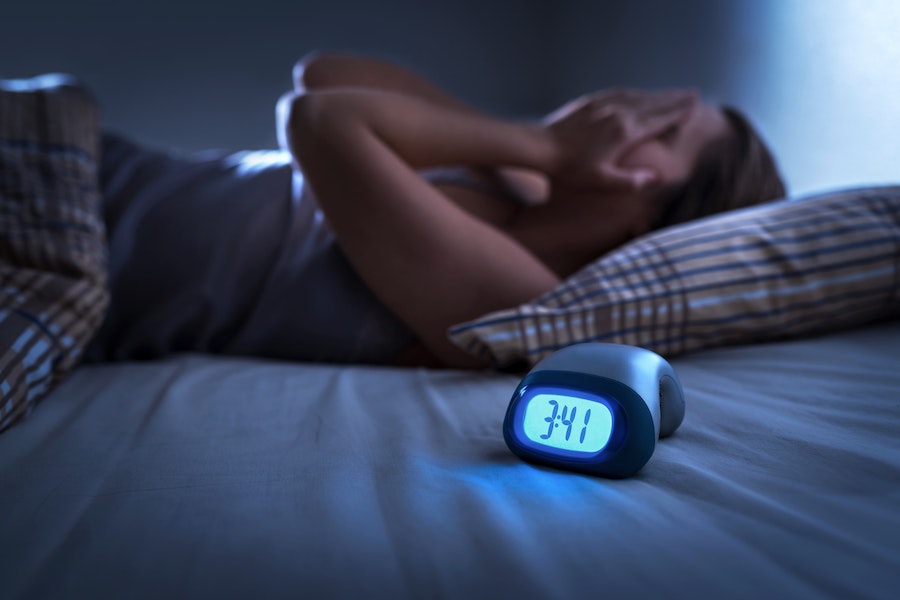World Sleep Day: 6 bedroom items that could be sabotaging your rest
Sleep – getting enough of it is one of the single best things we can do for our health, but powering down after a busy day is often easier said than done.
Many of us obsess over getting eight hours and take extra steps during the daytime to keep our sleep on track, like limiting caffeine and exercising in the morning, rather than the evening.
Unfortunately, there are plenty of devious devices and household products in your bedroom that could be sabotaging your sleep right before bed, and none of them are obvious at first glance.
Here are a few to be on the look out for next time you’re struggling to switch off…
1. Your lamp
LEDs use significantly less energy than traditional bulbs, but they produce more blue light, which can wreak havoc with the production of melatonin in the body. Melatonin is a natural hormone that is produced by the pineal gland in the brain and is responsible for giving you that sleepy ‘ready for bed’ feeling when night falls.
If you regularly rely on an LED lamp or overhead fluorescent lighting to illuminate your bedroom right before bed, try switching it for a new light source with a warm yellow or orange hue instead.
2. Your alarm clock

The one type of alarm clock sleep experts suggest you definitely shouldn’t use? Your smartphone.
According to the National Sleep Foundation, we should select an alarm clock that doesn’t emit blue light from a display screen, as it can make sleep time more difficult.
Investing in an old fashioned alarm clock means you can place your phone on charge outside of your bedroom – that way you won’t be distracted by incoming notifications either.
3. Clutter
If you have a tendency to pile clothes at the foot of your bed or leave papers and books stacked on surfaces, it might be time for a clear out.
A study by New York’s St. Lawrence University found that living in a messy bedroom can lead to a poor night’s sleep and increased anxiety over time. Researchers found that people with hoarder-tendencies, who have more physical things taking up space in their bedroom, take longer to fall asleep on average than those who keep their rooms tidy.
Basically, physical clutter means mental clutter, so keep your space clear and you’ll have an environment that’s more conducive to good sleep.
4. Your mattress
Whether it’s a saggy centre that’s stopped supporting your back or a spring that’s digging into your body during the night, an uncomfortable mattress can take its toll on your sleep.
If it’s time for a new model, opt for a medium-firm mattress with a soft top layer to give your spine both support and cushioning. Memory foam is helpful for those who struggle to get comfortable at night, as it cleverly moulds around your body’s contours. An additional piece to consider is a weighted blanket too, which gently presses on the user to keep them still until morning.
5. Your curtains
Research has consistently found that light, and lots of it, can disrupt our sleep. Your brain’s internal clock is dictated by its exposure to sunlight, which is your natural circadian rhythm.
If your curtains are doing a bad job of keeping daybreak out of your room, it could be the reason why you’re waking up before your alarm clock. Opt for a pair of blackout blinds instead – which will keep your room pitch black during the hours you’re planning to sleep.
6. Your linen
If you suffer from allergies, you’ll know all too well how sneezing and sniffling can keep you awake into the early hours.
Unfortunately, bedding is a haven for dust mites and fungal spores, which can easily cause a nasty flare up. Make the switch to anti-allergy bedding, which creates an environment that makes it difficult for dust mites to thrive, reducing the chance of an unpleasant allergic reaction.
It’s also a good idea to take any scatter cushions and rugs out of the room, as these might be harbouring unwanted guests too.
The Press Association
Latest posts by The Press Association (see all)
- BBC to air two-part Call The Midwife Christmas special - December 23, 2024
- 6 mind sports to exercise your brain and keep you sharp - December 20, 2024
- Quiz: What classic Christmas food or drink are you? - December 20, 2024
- Leftover turkey and watercress pie - December 20, 2024
- Catherine and William choose family shot for Christmas card photograph - December 19, 2024




















